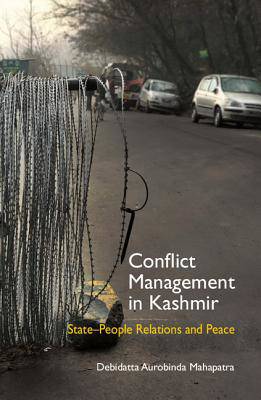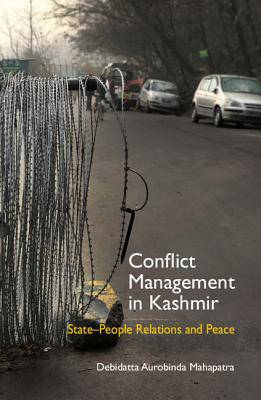
Bedankt voor het vertrouwen het afgelopen jaar! Om jou te bedanken bieden we GRATIS verzending (in België) aan op alles gedurende de hele maand januari.
- Afhalen na 1 uur in een winkel met voorraad
- In januari gratis thuislevering in België
- Ruim aanbod met 7 miljoen producten
Bedankt voor het vertrouwen het afgelopen jaar! Om jou te bedanken bieden we GRATIS verzending (in België) aan op alles gedurende de hele maand januari.
- Afhalen na 1 uur in een winkel met voorraad
- In januari gratis thuislevering in België
- Ruim aanbod met 7 miljoen producten
Zoeken
Conflict Management in Kashmir
State-People Relations and Peace
Debidatta Aurobinda Mahapatra
Hardcover
€ 110,95
+ 221 punten
Omschrijving
This work closely investigates the conflictual relationship in which the Indian state and a section of Kashmiris are engaged, and explores novel ways to foster conflict management. It documents narratives of Kashmiri traders and state officials, and emphasizes the importance of peace initiatives taken by the government.
Specificaties
Betrokkenen
- Auteur(s):
- Uitgeverij:
Inhoud
- Aantal bladzijden:
- 184
Eigenschappen
- Productcode (EAN):
- 9781108423892
- Verschijningsdatum:
- 24/11/2017
- Uitvoering:
- Hardcover
- Afmetingen:
- 158 mm x 235 mm
- Gewicht:
- 370 g

Alleen bij Standaard Boekhandel
+ 221 punten op je klantenkaart van Standaard Boekhandel
Beoordelingen
We publiceren alleen reviews die voldoen aan de voorwaarden voor reviews. Bekijk onze voorwaarden voor reviews.









